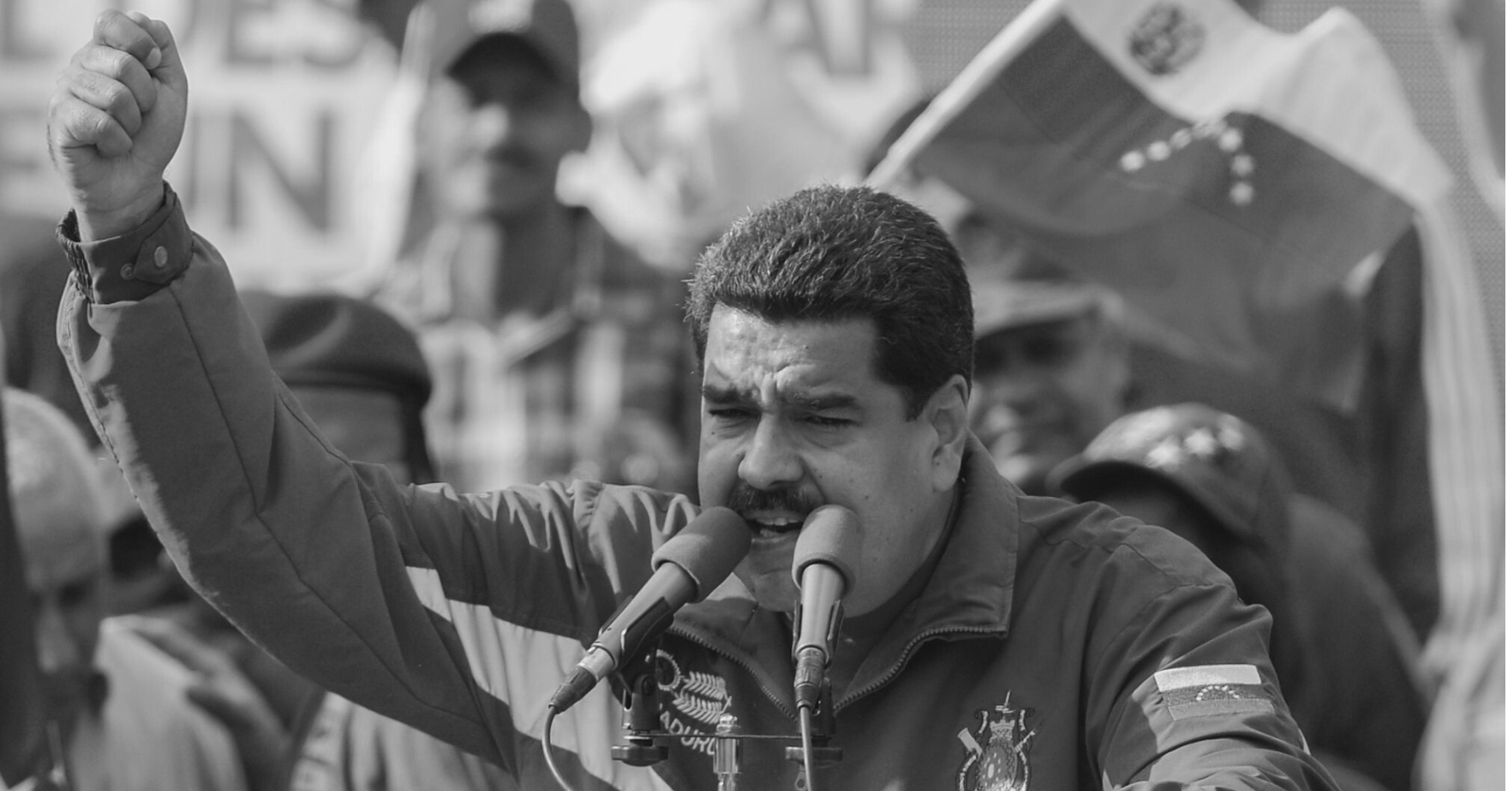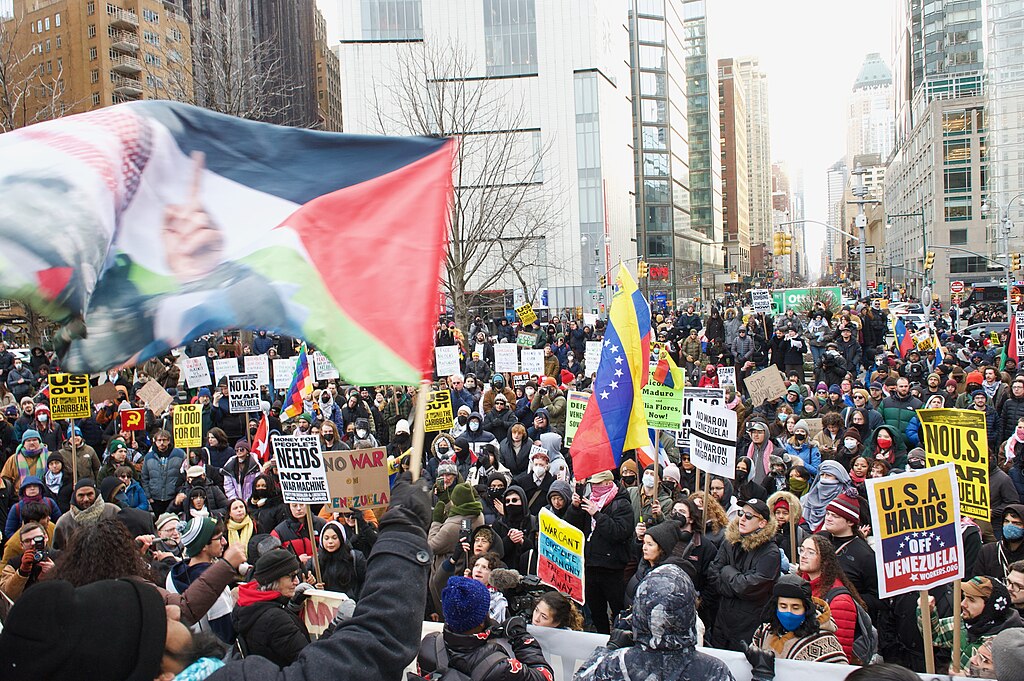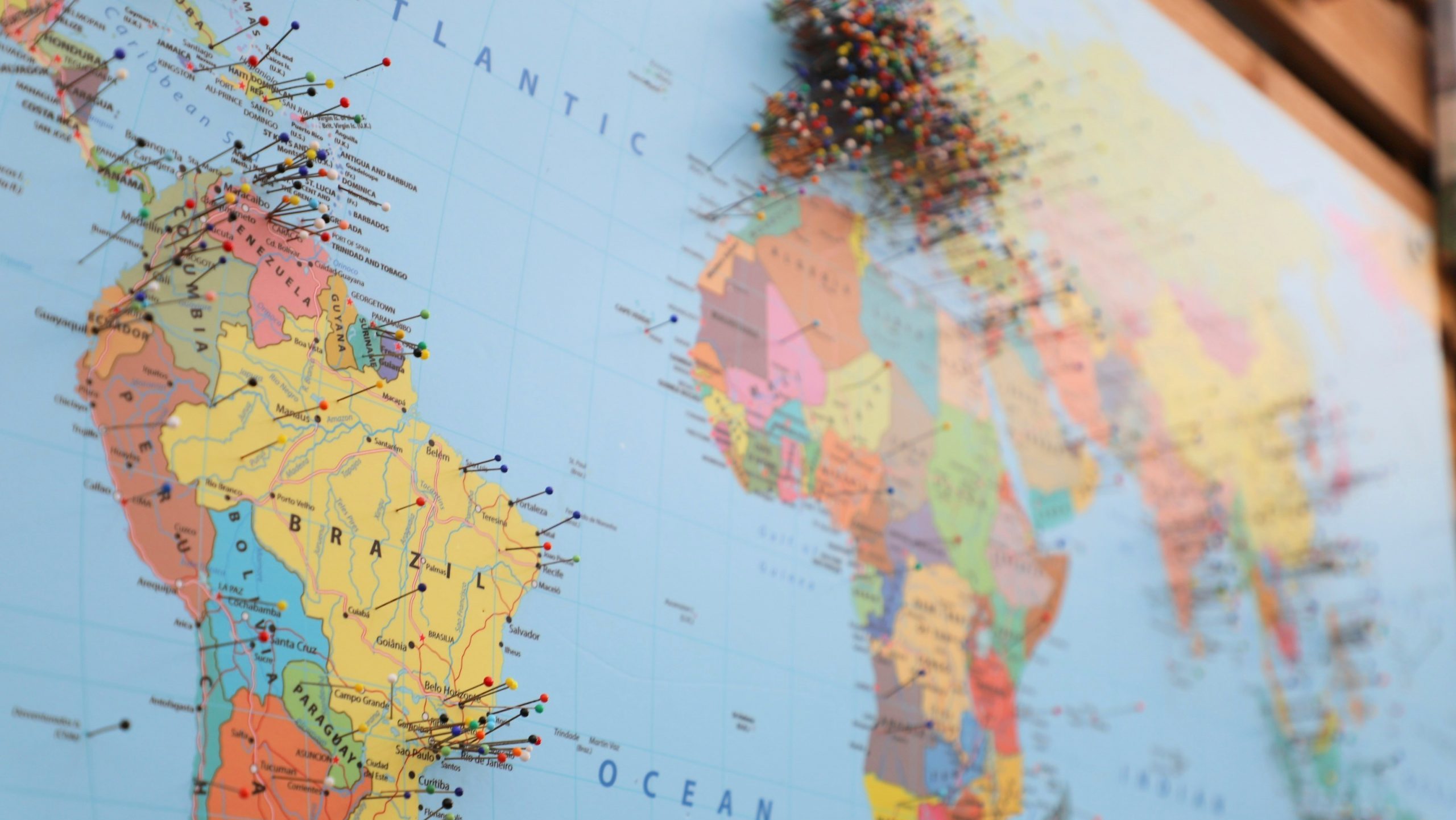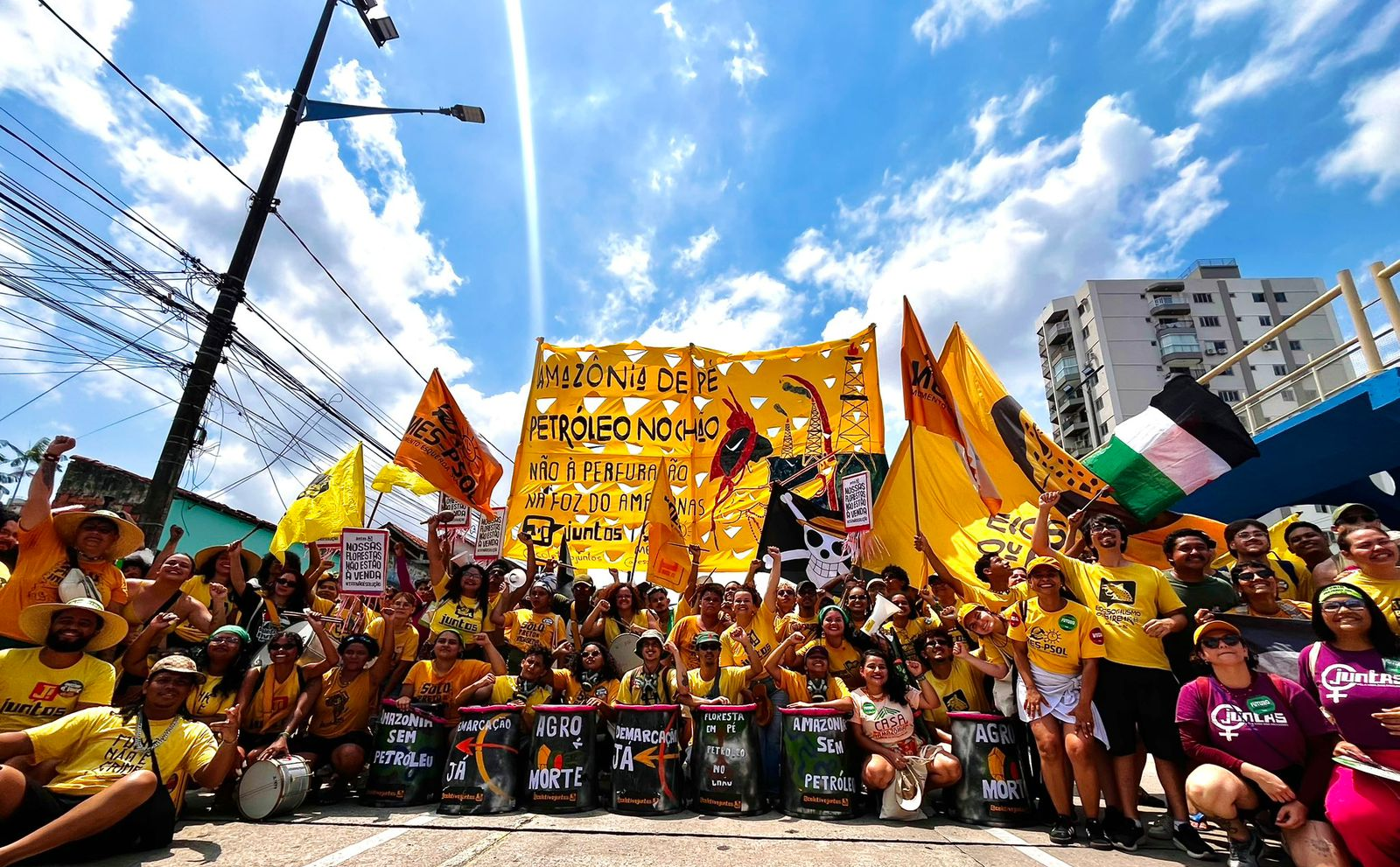We republish below a short account by Edgardo Lander, a Venezuelan sociologist and professor at the Universidad Central de Venezuela, of the steps taken by the government of Nicolás Maduro in Venezuela in the last few months to ensure that its government would “win” reelection despite strong popular opposition. This was originally published in the left-wing Venezuelan publication Aporrea. Despite these anti-democratic measures, the Maduro government’s victory is highly contested, and the government has so far refused to release detailed election results. Analyses from the election show that the initial results reported by the government, which produced almost perfectly round percentages, were highly improbable.
We also republish the statement of the left-wing governments of Mexico (Andrés Manuel López Obrador), Colombia (Gustavo Petro), and Brazil (Lula da Silva) calling on the Venezuelan election authorities to publish the full results, which they so far have withheld, and for all sides to deescalate. The US left must continue to strongly oppose the brutal sanctions placed on Venezuela by the US government and demand their end, while remaining clear-eyed about the anti-democratic nature of Maduro’s government.
“The Presidential Elections in Venezuela,” by Edgardo Lander
What do you do to try to “win” an election despite the majority of the country rejecting you?
- Appoint a National Electoral Council [Consejo Nacional Electoral, CNE] unconditionally subordinated to the will of the executive.
- Call a presidential election outside the usual dates and with less notice than the law provides, in order to try to surprise the opposition forces and to try to prevent them from coordinating their policies in the period leading up to the elections.
- Prevent Venezuelans abroad, who have the right to vote in presidential elections, from participating in the elections. Of the approximately 4 million potential voters abroad (mostly from the opposition), only about 60,000 were allowed to participate.
- Severely limit the time and conditions for updating voter registration, which means that many young people and people who had moved to a different location from where they were registered as voters were unable to vote.
- Prevent the registration of parties that could constitute a left-wing opposition to the government. Example: Marea Socialista.
- Intervene, through decisions of the Supreme Court of Justice, in most opposition parties by appointing new pro-government leaderships, whether they are members of those parties or not. As a result, the parties that were intervened in supported Maduro in the elections. This includes the Communist Party, which had joined the opposition [to Maduro] and, in recent years, has been very critical of the government, denouncing its “neoliberal” and “anti-popular” nature.
- Use widely a device that clearly violates the Constitution, which consists of disqualifying political leaders, thus denying them the right to be candidates or to hold public office. These disqualifications, which are for up to 15 years, were carried out by a subordinate office of the Comptroller General of the Republic, through a simple administrative decision.
- Change, without prior notice, the centers to which many voters are assigned, as a way of trying to reduce voter turnout.
- Use on a massive scale state resources for electoral purposes. State media systematically operates as an instrument of electoral propaganda for the party-state. All electoral propaganda, posters, demonstrations, and other electoral events are paid for with public funds.
- Force state employees to participate in demonstrations in support of President Maduro’s candidacy.
- Create doubts about the secrecy of the vote to pressure those who, in some way, depend on state resources (aid, employment, housing) not to vote for the opposition, putting their access to these resources at risk.
- Censor and close media outlets that are considered pro-opposition.
- Block websites not controlled by the government. For example, access to [the left-wing publication] Aporrea is often blocked for those who depend on the state-owned telecommunications company for their Internet access. This portal has been the main space for debate for the left, both pro-government and opposition, for the past two decades.
- Pursue and arrest members of the main opposition candidate’s campaign team.
On election day, witnesses who had been accredited by the National Electoral Council by different parties to witness the vote were prevented from entering many polling stations.
When voting ended at 6 p.m., the law stipulates that the vote count is open to the public. In many polling stations across the country, the public was not allowed access to the vote count.
According to the electoral law, once voting has finished and the results issued by the voting machine are compared with the printed receipts that each voter receives from the machine to deposit in a ballot box, and once it is verified that there is no difference between the printed receipts and the result recorded by the machine, a record of these results is drawn up and sent signed by the polling station staff and witnesses. Copies must be printed for the polling station staff and witnesses at the counting center, so that these results can be compared with what the National Electoral Council will later present as official results. These official results must include details of what happened in each place. In a large proportion of polling stations across the country, National Electoral Council representatives refused to provide witnesses with a copy of the record.
Thus, when representatives of opposition organizations only had copies of 40% of the vote count records (in which the government’s defeat was clear), and were prevented from entering the national tally center, the National Electoral Council called a press conference in which it reported that Nicolás Maduro had won the elections with 5,150,092 votes (51.2%) against the opposition candidate Edmundo González Urrutia, who had received 4,445,978 votes (44.2%). It stated that, with 80% of the votes counted, the result was irreversible. Even if the data presented were true, the results were not irreversible, because the difference between Maduro and González Urrutia would have been around 700,000 votes, with around 2,600,000 votes still to be counted.
The following morning, before the vote count was completed and without the opposition parties being able to review even part of the voting records, the CNE proclaimed President Maduro as president-elect for the next 6 years.
On the afternoon of Monday the 29th, Edmundo González Urrutia and María Corna Machado declared that they already had more than 70% of the electoral registrations and can prove that Maduro was defeated.
The Carter Center and Celso Amorim, representing Lula da Silva, declare that they will not recognize the election results until all electoral reports are released.
The governments of Cuba, Nicaragua, Honduras, China, Russia and Iran congratulate Maduro on his victory. Most Latin American governments reject the results.
These are the “free and democratic” elections held in Venezuela on July 28, 2024.
Meanwhile… pots and pans are banged and protests are held all over the country…
Republished and translated from Apporea
Presidential Elections of the Bolivarian Republic of Venezuela — Joint Statement by Brazil, Colombia and Mexico
The governments of Brazil, Colombia, and Mexico congratulate and express our solidarity with the Venezuelan people, who turned out in large numbers to vote on July 28 to determine their own future.
We are closely following the vote counting process and we call on the Venezuelan electoral authorities to move forward quickly and publicly to disclose the data broken down by polling station.
Disputes over the electoral process must be resolved through institutional means. The fundamental principle of popular sovereignty must be respected through the impartial verification of the results.
In this context, we call on political and social actors to exercise maximum caution and restraint in their demonstrations and public events, in order to avoid an escalation of violent episodes.
Maintaining social peace and protecting human lives must be the chief concerns at this time.
Let this be an opportunity to express, once again, our absolute respect for the sovereign will of the Venezuelan people. We reiterate our willingness to support efforts to engage in dialogue and seek agreements that benefit the Venezuelan people.
Republished and translated from the government of Brazil




